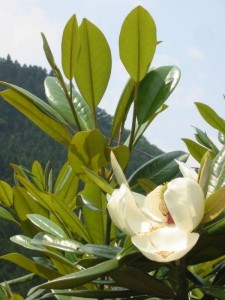
Sometimes it is difficult to know if Japanese really don`t know about something, or
they just feel too uncomfortable to talk about it. There are some topics that they
just don`t discuss. As well, there are some topics that the government and other
institutions have done a masterful job of covering up, hiding the truth or if very
successful, changing the truth. The assault on the truth of Japan`s wartime atrocities is a case in point. Some young Japanese were surprised to learn that
Japan even participated in World War 2! But I digress.....
Photo: Hadano, Kanagawa Photo by Jonathan DeNardis
My wife is not stupid. She graduated from one of the best universities in Japan. But until I told her about the plight of Burakumin after reading a small book in English that had been produced by a Burakumin society in Japan, she had not idea what I was talking about. It is tragic that some Japanese are pretty naive about their own country, and I allude to not only the plight of the estimated 1.2 million Burakumin of Japan, but things like what really happened during World War 2. There are too many dirty little secrets here.
This exchange with my wife led me to wonder if there was some kind of conspiracy--some kind of coverup.
I later learned that in my wife`s area, there were few Burakumin, and they weren`t discussed much by anyone.
However, one of my students a few years ago, revealed that there were quite a few Burakumin living in Kanagawa. She was a retired teacher, and said that when dealing with Burakumin families, her school principal told her to be careful how she phrased things, and of course to always treat Burakumin with respect. He felt that the Burakumin were very sensitive to any kind of prejudice, imagined or real. So my student was very careful about what she said.
Probably I have met some Burakumin in Japan but of course they have kept it a secret.
At one time I read that there was a black list of Burakumin, that the large companies of Japan kept, so that they would avoid hiring one. I wonder if that is true. Japan is such a dilemna of mysteries, it is hard to unravel the truth for Japanese, and the press here is so locked up with press club system, that it is difficult to publish anything that might be too unpalatable to the government.
I think Burakumin have never enjoyed more freedom from prejudice than now. Yet I am just a smalltown Canadian, and how can I ever really understand what it must be like to grow up in a Buraku, and face a lifetime of stygma.
Kevin Burns
"Origin of the Discrimination Buraku people or Burakumin (min refers to people) are the largest discriminated-against population in Japan. They are not a racial or a national minority, but a caste-like minority among the ethnic Japanese. They are generally recognized as descendants of outcaste populations in the feudal days. Outcastes were assigned such social functions as slaughtering animals and executing criminals, and the general public perceived these functions as 'polluting acts' under Buddhist and Shintoist beliefs. When the social status system was established in the 17th century (early Edo era) in the form of three classes (warrior, peasant, townsfolk), those outcastes, origin of the present Buraku people, were placed at the bottom of the society as Eta (extreme filth) and Hinin (non-human) classes. In 1871, the Meiji government promulgated the 'Emancipation Edict', declaring the abolition of the lowest social rank. Nevertheless, this has never gone further than a simple statement, without any effective measures..."
---from the Buraku Liberation League
Japanese Funeral Customs: http://www.japan-guide.com/e/e2060.html
No comments:
Post a Comment